This is the first school year to implement the Resolution of the 14th National Party Congress, the Resolution of the National Assembly on the 5-year socio-economic development plan 2026 - 2030; it is also the school year the whole country implements the two-level local government model; and implements Resolution 71-NQ/TW of the Politburo on breakthroughs in education and training development.
Ms. La Thi Thuy - Director of Vinh Long Department of Education and Training: Turning difficulties into opportunities
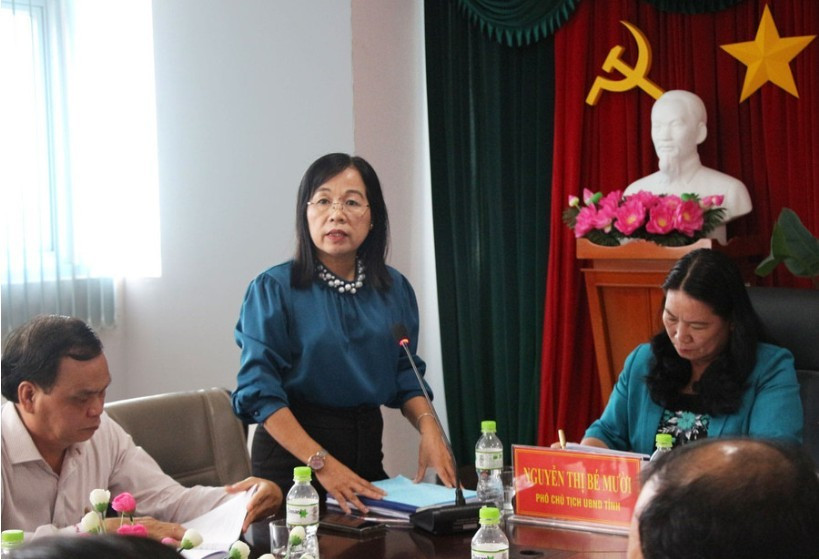
The 2025-2026 school year is the first school year to implement the Resolution of the 14th National Congress of the Party; the Resolution of the National Assembly on the 5-year Socio -Economic Development Plan 2026-2030. This is also the school year the whole country implements the Resolution of the Politburo on breakthroughs in education and training development; the Law on Teachers;
Resolution of the National Assembly on exemption and support of tuition fees for preschool children, general education students, and those studying educational programs in the national education system; Resolution of the National Assembly on universalizing preschool education for children from 3 to 5 years old; at the same time, this is the first school year implemented in the context of a two-tier local government model.
In this context, the entire Education sector of Vinh Long province enters the new school year with many important goals: Continuing to effectively implement the new General Education Program, enhancing digital transformation in teaching and learning, taking care of staff development, improving the quality of comprehensive education and promoting moral education and life skills for students.
Each school needs to become a bright spot in innovation and humanity; each teacher is a model of intelligence, dedication and responsibility; each student is an active subject in the journey of learning and training for comprehensive development.
The key tasks and solutions have also been identified by the sector. Accordingly, the organization effectively implements state management of education and innovates school governance. Continue to innovate and improve the quality of preschool, general and continuing education.
Develop a team of teachers and educational institution managers to meet the requirements of educational and training innovation. Promote digital transformation and administrative reform in the field of education and training. Innovate political and ideological education and communication work throughout the sector.
In the new school year, Vinh Long will pilot a number of new models and replicate effectively implemented models; review the organization of teaching 2 sessions/day in secondary and high schools where conditions permit; implement emulation peaks, especially the movement of innovation in management, teaching and learning.
In particular, the provincial Education sector is developing plans to implement three breakthroughs in the 2025-2030 period, which are: Making English the second language in schools; completing universal preschool education for children aged 3-5; developing science and technology and digital transformation in education.
It can be said that currently, educational institutions in the province are basically stable, so it is convenient to carry out tasks. However, we also frankly acknowledge some difficulties and challenges in the process of preparing for the new school year. Specifically, there are certain differences in facilities between schools in the province.
Some schools still lack classrooms, functions, and modern teaching equipment, requiring large investment resources to upgrade and renovate. Arranging and assigning teaching staff faces some challenges to ensure balanced subject structure and uniform professional quality among schools. Implementing training and development programs according to the province's common standards for a large number of newly recruited teachers also requires time and resources.
Synchronizing industry data and unifying administrative, financial and professional management processes across the province is a significant challenge, requiring the efforts and close coordination of all units. In some central areas, the pressure to increase the number of students per class raises the issue of investing in expanding schools in the coming time.
However, with the deep concern of the Provincial Party Committee, People's Council, Provincial People's Committee and the consensus of the whole industry, we have built a detailed plan with specific solutions to gradually overcome these difficulties.
Changes in administrative boundaries not only pose new requirements for management, coordination and resource allocation, but also pose a major challenge to the education and training system in ensuring stability, quality and continued development.
But I believe that with the tradition of solidarity, sense of responsibility, and deep love for the profession, the whole industry will turn difficulties into opportunities, turn challenges into motivation to strive to excellently complete the tasks of the new school year.
The staff and teachers of the Education and Training sector of Vinh Long continue to maintain their faith, promote the spirit of creativity, dedication and dare to think, dare to do, step by step improve the quality of education in the new conditions. Although the road ahead is still full of difficulties, I believe that with the will and determination of the collective, implementing well the motto "Maintaining the foundation - Innovating - Improving quality", the Education sector of Vinh Long will continue to achieve many achievements, making practical contributions to the cause of human and homeland development, meeting the expectations of the Party Committee, government and people in the province.
Mr. Le Truyen Thong - Head of Personnel Organization Department (Department of Education and Training of Can Tho City): Take the satisfaction of learners and teachers as a measure
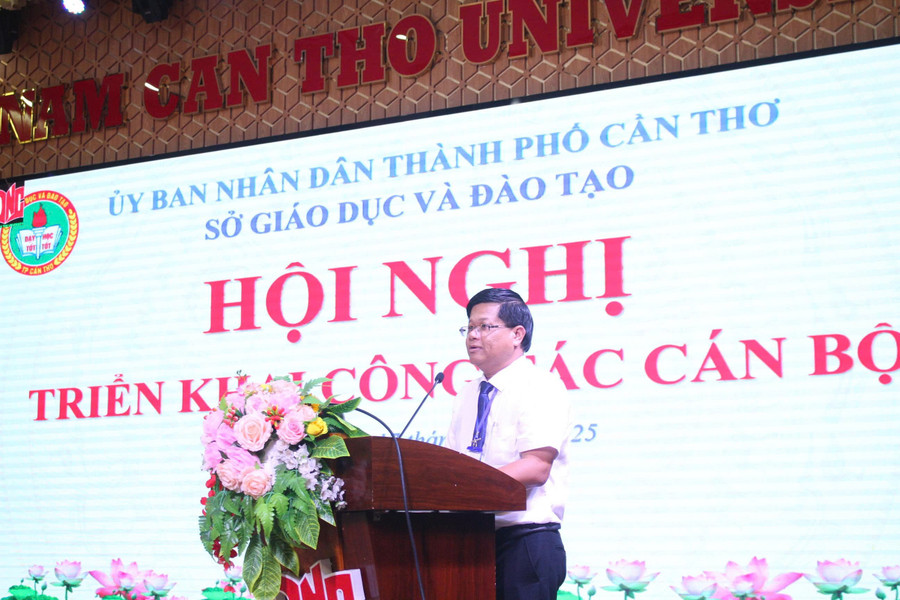
The 2025-2026 school year is of special significance. In particular, the Law on Teachers was passed by the National Assembly at the 9th Session of the 15th National Assembly and took effect from January 1, 2026. For the first time, there is a law that fully regulates the legal status of teachers with major policies to standardize and improve the quality of the teaching staff; policies to create a favorable environment for teachers to fully develop their creativity, attract talented people to become teachers; and protect teachers in their professional activities.
The 2025-2026 school year also marks the moment when the country changes after the arrangement, organization of the apparatus, new personnel, and operation of the two-level government. The moment of starting a new school year is also the opening of a new era for education.
This is also the time to celebrate the 80th anniversary of the establishment of the Education sector. Therefore, the Education sector continues to demonstrate its determination to comprehensively innovate and overcome the difficulties of the initial stage of operating the two-level local government model.
After the merger, the Can Tho City Education and Training sector has expanded its development space, the teaching staff and student population have increased, contributing to improving the sector's position. We have determined that to successfully innovate education, the core is people. The Education sector has directed units to strengthen training and improve the professional qualifications of teachers.
The staff and teachers are regularly trained to meet new requirements, including classes to improve differentiated teaching capacity, develop learning materials, innovate assessment and testing... Schools have proactively innovated teaching methods towards developing learners' qualities instead of focusing on equipping knowledge.
This change gradually becomes a habit, creating positive movements in each school, contributing to improving the quality of each teaching hour... In addition, integrating technology into education management helps reduce the time for making records and reports, while increasing transparency and communication between parents - teachers - schools.
With a spirit of unity and sharing responsibility for carrying out new tasks of the entire industry, immediately after implementing the merger, the Department of Education and Training quickly arranged stable workplaces; proactively arranged personnel, arranged and deployed tasks.
In particular, it is necessary to ensure that administrative procedures are handled smoothly, effectively, and without interruption when arranging administrative units and implementing the two-level local government model. Department leaders organize meetings, agree on the assignment of tasks in charge of the field; implement the process of developing plans for arranging and assigning civil servants and employees when implementing the arrangement of the apparatus...
With consensus and determination, we expect the 2025-2026 school year to continue to be a strong turning point for the education sector. Not only focusing on expanding the scale of schools and ensuring learning conditions for students, but also paying attention to quality, pedagogical environment and satisfaction of learners and teachers.
Effectively implement the Party and State's policies and guidelines on education and training, successfully achieve the goals and themes of the 2025-2026 school year: "Discipline - Creativity - Breakthrough - Development".
Mr. Nguyen Duc Quoc - Chairman of Nam Viet International Education Group: Many premises for non-public education to develop
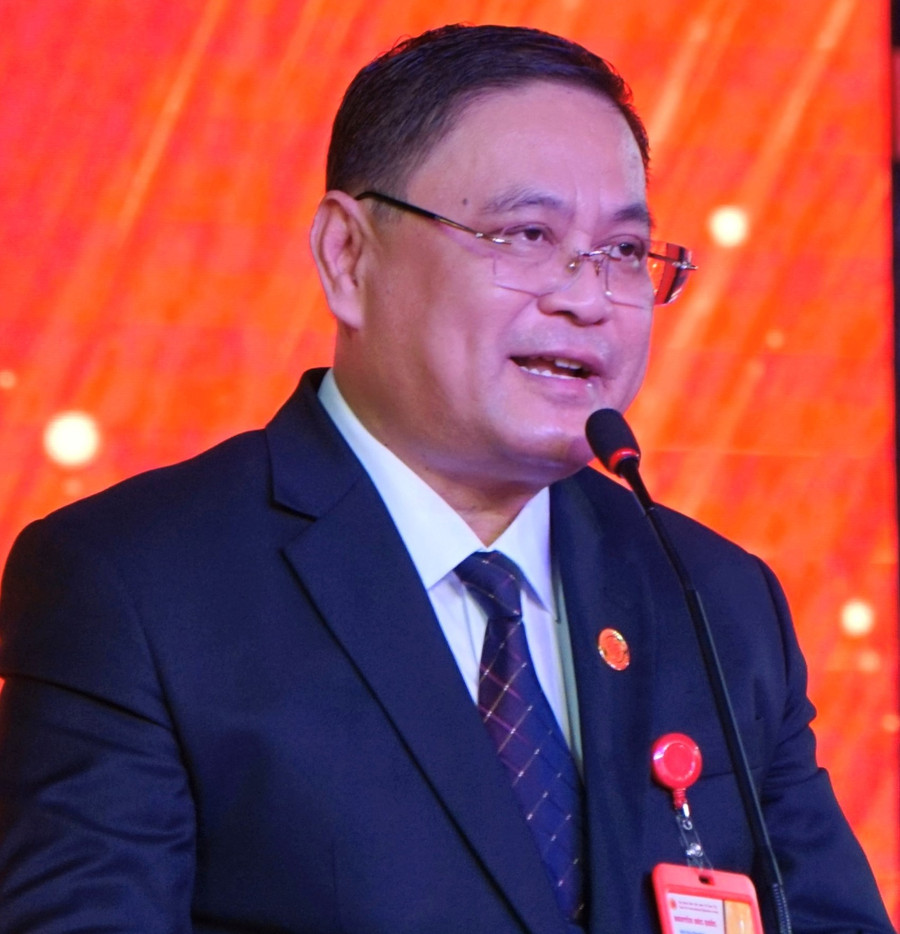
This is the first school year that the whole country has simultaneously implemented the two-tier local government model, and it is also the year that the Law on Teachers officially takes effect. A notable highlight is the affirmation of equality between public and non-public schools.
For Nam Viet School, this not only creates more motivation but also affirms the value and contribution of the non-public school system to the national education system. We believe that, with the change in the legal framework, the development and integration opportunities of Nam Viet will be increasingly open, while at the same time, its responsibility to society will be greater.
In addition, the Law on Teachers coming into effect also opens up many opportunities for non-public teachers. Teachers are allowed to participate in research, knowledge transfer, training and improvement of qualifications, and enjoy support policies and allowances according to the nature of their work... This is a strong motivation for schools to invest more in professional development, training, fostering and caring for the lives of their teaching staff.
It can be said that, entering the new school year, our greatest determination is to continue to affirm the school's pioneering position in the field of non-public education, while contributing to the common mission of Vietnamese education: Training generations of excellent citizens, both bearing Vietnamese identity and having the capacity to compete globally. The school's greatest expectation is to see each student grow up, confidently enter life, and become the pride of their family and society.
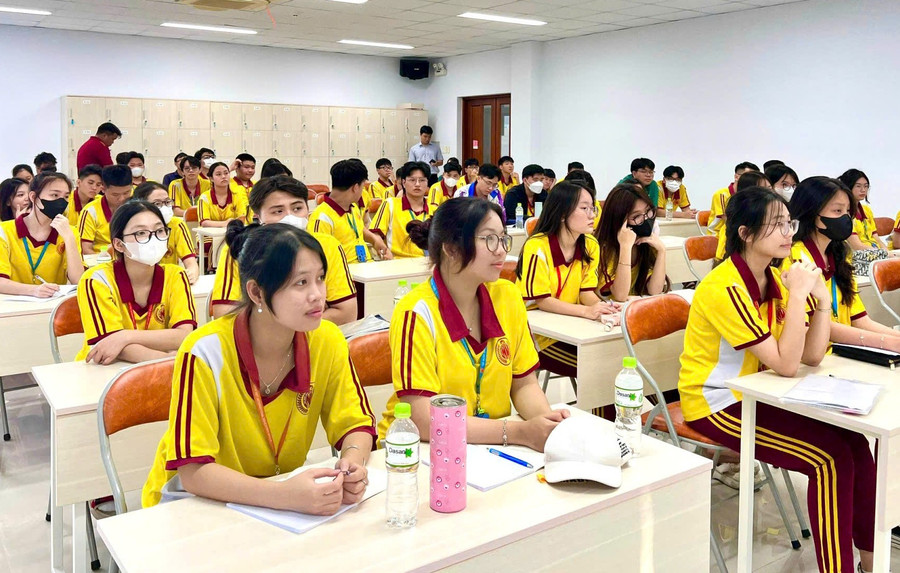
Mr. Bui Van Binh - Principal of Phong Tho Town Secondary School (Lai Chau): Expectations from the new management mechanism

Last school year, Phong Tho Town Secondary School continued to maintain and improve the quality of comprehensive education. Management work was seriously implemented, democratic regulations were well implemented, ensuring transparency in all activities.
The school has effectively promoted the emulation movement "Innovation and creativity in teaching and learning", focusing on innovating teaching methods towards developing students' qualities and abilities.
Since then, the school's educational quality has been affirmed. The school has achieved many achievements in excellent student competitions at all levels, English Olympics, scientific and technical research... The staff and teachers actively participate in training, with 19/20 teachers having completed professional title promotion certificates. The application of information technology in teaching and management has been promoted, 100% of teachers have applied information technology in teaching.
In terms of facilities, the school maintains 20 classrooms and functional rooms, with active contributions from socialized sources. Extracurricular activities, experiences, culture - arts, and sports are organized in a rich variety, contributing to building a friendly, safe, green - clean - beautiful educational environment.
In the coming school year, the school will have 550 students. In the immediate future, the implementation of two-tier local government will not affect the school's enrollment work. We aim to continue reviewing and planning a reasonable network of educational facilities, ensuring that the number of classes meets the quota.
Improve the quality of teachers and managers through training. Continue to innovate management work, strengthen moral education, life skills, physical education, promote students' abilities and qualities and career guidance after junior high school...
To achieve the above goals, we focus on building internal regulations and management rules that are suitable for the requirements of the industry, ensuring that work is handled quickly and effectively. Improve leadership and management capacity by self-studying, self-training, and promptly grasping information to direct closely to reality. Review, plan, and train teachers according to job positions, and send them to fully participate in training courses organized by all levels.
In addition, strengthen innovation in teaching methods, organize activities to promote students' abilities and qualities. Promote socialization, mobilize organizations, individuals, and parents to participate in promoting learning, talent, and supporting facilities. Coordinate with parents, authorities, and local media to promote the school's image, creating consensus in society.
After implementing the 2-level local government, the school is under the management of the Commune People's Committee. We hope to continue to receive attention and direction from the Department of Education and Training, the Commune People's Committee, and directly the Department of Culture and Society to be able to successfully complete the tasks and goals set for the school year.
Mr. Nguyen Van Tuan - Head of History - Geography Group, Nguyen Hue Secondary School (Hai Chau, Da Nang City): Teachers are examples of self-study and creativity.
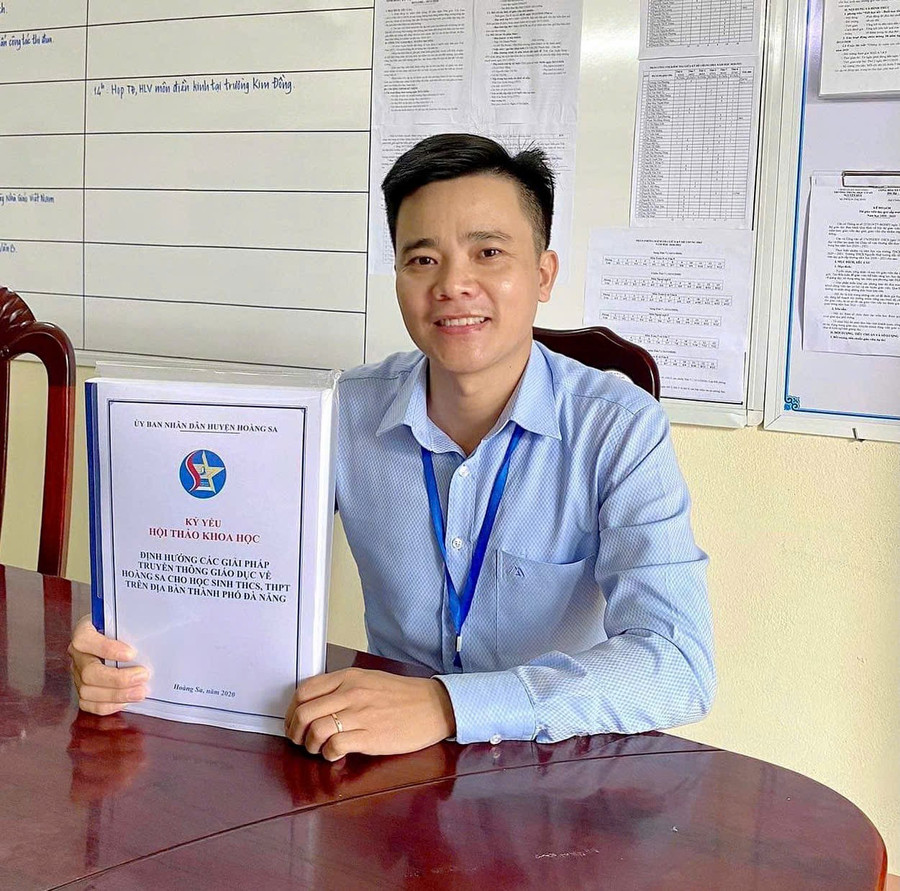
The 2024-2025 school year has come to an end, leaving me with mixed emotions - joy, pride, but also many concerns. Looking back on the past journey, I clearly see the persistent efforts of the entire education sector, from the close guidance of leaders at all levels, the dedication of the teaching staff to the constant efforts of students and parents.
The biggest highlight is the promulgation of the Law on Teachers - a milestone demonstrating the Party and State's concern for the teaching profession. This law not only affirms the position of teachers but is also a great source of encouragement, helping us to be more confident in our chosen career. Legal documents, decrees and circulars issued in a timely manner have contributed to creating a synchronous legal corridor for educational innovation.
The education sector has also made strong strides in digital transformation, digitizing millions of transcripts and diplomas, connecting data to the national system; implementing online enrollment, ready to apply digital transcripts and digital diplomas widely from the 2025-2026 school year. This is a big step forward, opening up opportunities to reduce procedures, increase transparency and convenience for learners.
However, besides joy and pride, I also feel a lot of pressure. Digital transformation and the application of artificial intelligence (AI) are both opportunities and challenges for teachers. Many teachers are facing the challenge: Are we fast enough to avoid being left behind? Does artificial intelligence help reduce the workload or overshadow the role of teachers? How to effectively guide students to use AI in their learning?
We are faced with the need to continuously learn, adapt to new technologies, innovate teaching methods, develop digital learning materials, organize classes integrating STEM, STEAM, AI. Applying new teaching methods, integrating interdisciplinary subjects, developing digital capacity for teachers and students requires a lot of time, effort and investment in infrastructure - something that not every place can afford.
Besides, the difficulties of the industry also make me worry: The difference in learning conditions between regions; the shortage of teachers; the uneven facilities, especially in remote areas. These shortcomings directly affect the work of teachers and each student, especially the disadvantaged students who need more support.
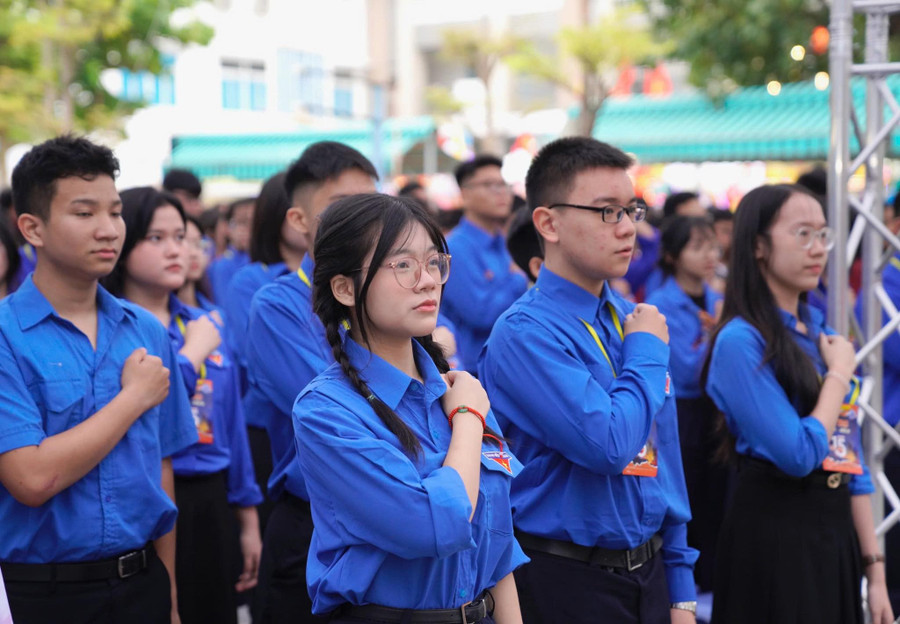
But it is these difficulties that motivate us to expect more when entering the 2025-2026 school year, a special school year. This is the first year to implement the Resolution of the 14th Party Congress, the Resolution of the National Assembly on the 5-year socio-economic development plan 2026-2030, and also the school year when the whole country deploys the two-tier local government model. I believe that these changes will help to streamline education management, make it more effective, empower and support the grassroots better, and create conditions for schools to promote initiative and creativity.
In particular, I look forward to the strong implementation of the Politburo’s Resolution on modernization and breakthrough in education development. This will be an important “push”, opening up opportunities for real innovation. I believe that the Law on Teachers will soon come into effect, helping to raise the status, improve the remuneration regime, and protect the legitimate rights of teachers. When life is well taken care of, we will have more motivation to be creative, to learn for life and to contribute more.
I also hope that professional development and self-development will be organized in a practical way, linked to the needs of teachers, especially in the fields of technology, AI, and digital education. If well supported, I believe that each teacher will become an innovator, a guide to help students access new knowledge and new skills in the digital age.
“The 2025-2026 school year opens with many opportunities and challenges. We have faith and aspiration: To continue to strive to learn, innovate, and make small but practical contributions to the common cause of the industry. I believe that with the attention of the Party and the State, the participation of the whole society and the dedication of each teacher, we will enter a period of stronger, more modern and humane educational development”. Mr. Nguyen Van Tuan - Nguyen Hue Secondary School (Hai Chau Ward, Da Nang City)
Source: https://giaoducthoidai.vn/quyet-tam-va-ky-vong-trong-nam-hoc-moi-post746448.html




![[Photo] Politburo works with the Standing Committees of Vinh Long and Thai Nguyen Provincial Party Committees](https://vphoto.vietnam.vn/thumb/1200x675/vietnam/resource/IMAGE/2025/9/8/4f046c454726499e830b662497ea1893)
![[Photo] Politburo works with the Standing Committees of Dong Thap and Quang Tri Provincial Party Committees](https://vphoto.vietnam.vn/thumb/1200x675/vietnam/resource/IMAGE/2025/9/8/3e1c690a190746faa2d4651ac6ddd01a)












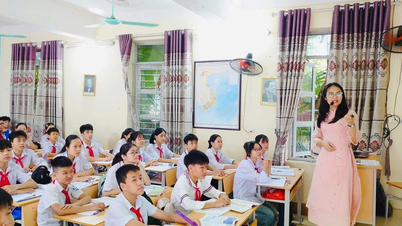
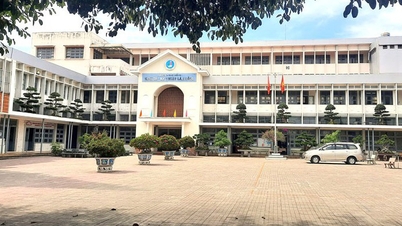



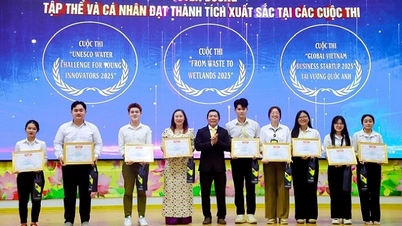

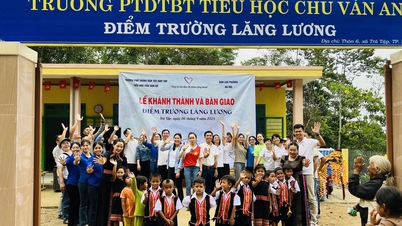





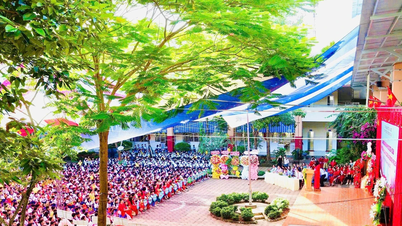

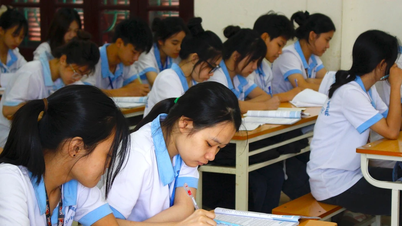
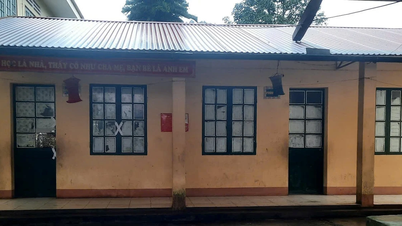
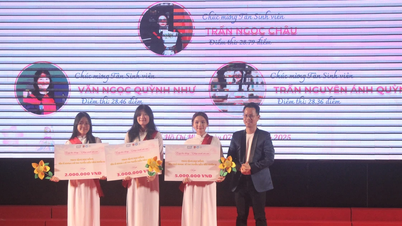
![[Photo] Amazing total lunar eclipse in many places around the world](https://vphoto.vietnam.vn/thumb/1200x675/vietnam/resource/IMAGE/2025/9/8/7f695f794f1849639ff82b64909a6e3d)



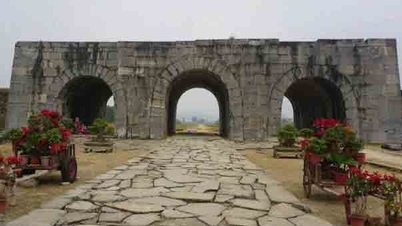
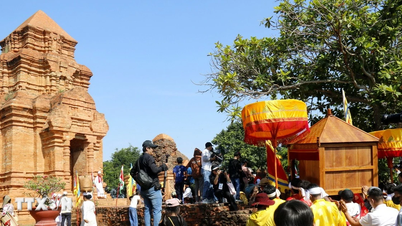




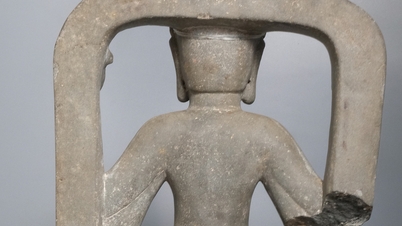
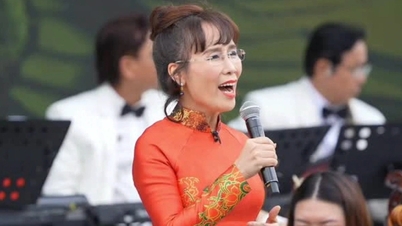


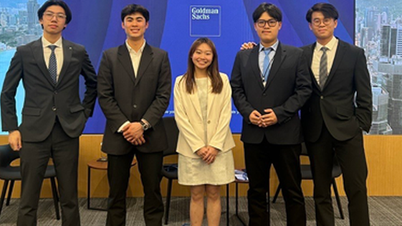





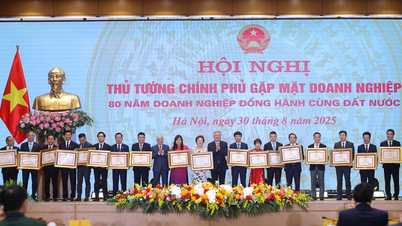
















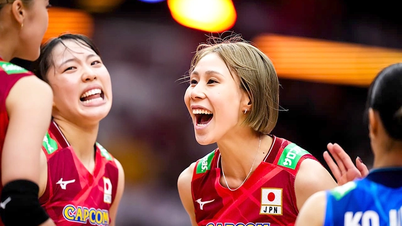
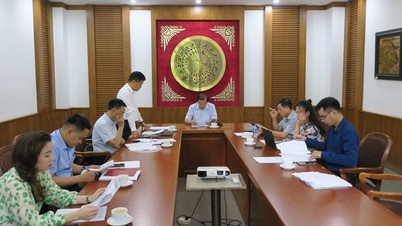









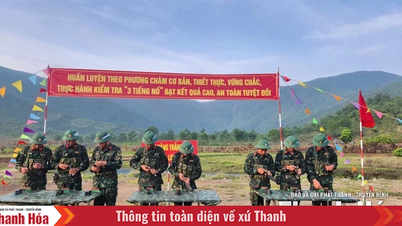










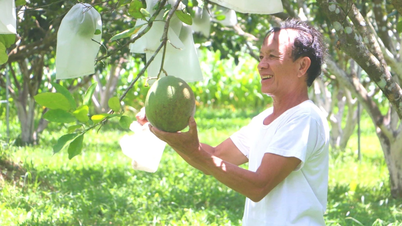








Comment (0)